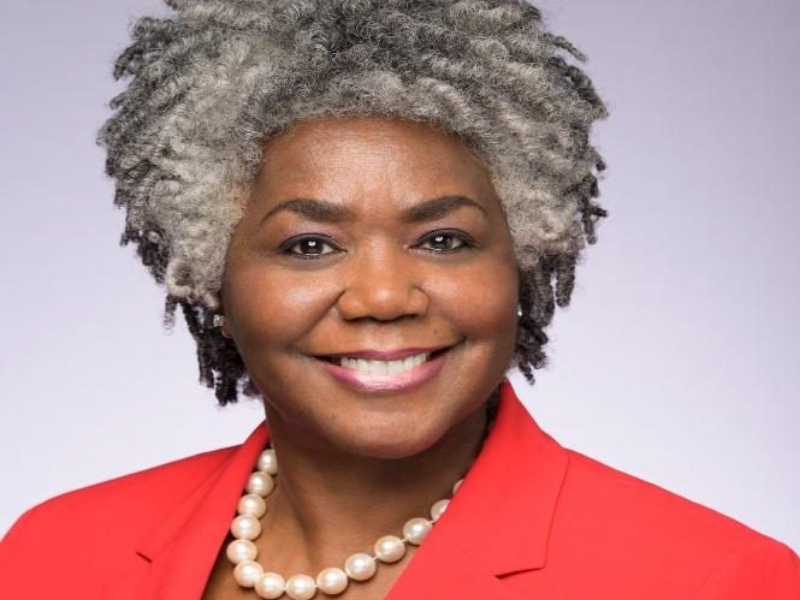Students’ Alarming Mental Health Dilemma – and the Steps Toward a Promising Future
A recent study revealed that many college students in the U.S. are facing a mental health crisis.
In fact, more than half of college students rate their mental health as fair, poor or terrible, according to a survey conducted by The Harris Poll with subsequent research by The Steve Fund.
Titled “Student Mental Health on College Campuses,” The Harris Poll surveyed 2,050 U.S. residents aged 18 to 24 between Feb. 29 and April 1, 2024, who were attending a four-year college or university in the U.S. The poll results were launched in May 2025.
The Steve Fund (TSF), a leading nonprofit organization focused on supporting the mental health and emotional well-being of young people—Black and brown youth, in particular— found that threats of budget cuts at schools are impacting student services. As more than 50 percent of students reported a need for mental health support, the nonprofit also discovered that students of color are disproportionately affected.
“There is greater awareness of mental health resources. However, students from The Harris Poll survey pointed out that they wish their colleges or universities would offer more services for them,” said Dr. Annelle Primm, the senior medical director of The Steve Fund.
“In many instances, limited resources preclude campuses from having enough mental health resources to go around.”
Seeking to improve the state of their mental health, students have asked for more group-oriented services and green spaces, added Primm, who has a background in community psychiatry.
Given America’s sensitive political climate featuring overwhelming rollbacks of DEI (diversity, equity and inclusion) initiatives, many colleges across the country don’t have the resources, programs or culturally component support that addresses the challenges that minority students face.
Researchers assert that DEI rollbacks, coupled with the crucial 2023 Supreme Court ruling that reversed affirmative action in higher education, brought about numerous issues with regard to mental health assistance on college campuses.
TSF’s research exposes deficiencies in campus mental health systems, raising an urgent call for investment in culturally responsive care before more students are negatively affected.
“Not just young people of color, but even adults have felt there’s been a long-standing disparity in the extent to which they’ve received mental health services. There are racial disparities and unmet needs,” Primm told The Baltimore Times.
“But I will say across the board – no matter what racial identity group you’re talking about – there are unmet needs, still, and we still have a ways to go as it relates to mental health. There are also concerns about the suicide attempts, particularly among Black young people, that those rates have been increasing, whereas other racial groups have been going in the other direction. So, it’s never been more important to focus on mental health of all populations, to improve their access to services and remove some of the barriers.”
Primm, a medical educator, administrator and clinician at Johns Hopkins’ Hospital Community Psychiatry Program, has emerged as one of many health leaders taking actionable steps to bring mental health reform.
Key findings from the 18-page report published by The Harris Poll and TSF include:
- One in four students said college had a negative impact on their mental health.
- More than 7.5 million young people from historically disadvantaged backgrounds in the U.S. struggle with their mental health.
- More than 75 percent of students believe colleges must invest more in targeted mental health support.
- Two of five students report struggling with imposter syndrome (refers to self-esteem and perfectionism tendencies).
- 80 percent of students of color (Black, Asian, and Hispanic) desire mental health programs tailored to their background.
In the face of uncertainty, there is a glimmer of hope, Primm highlighted.
She, along with TSF colleagues and partners, has commenced a number of initiatives through social media campaigns, establishing peer ambassador programs, planning live Q&A events featuring health professionals, and building an online community through a new resource hub named “My Digital Sanctuary.”
“We are working with colleges and universities through our Excellence in Mental Health on Campus Program to… help them change some of their practices and policies, to make the campuses more positive from a mental health standpoint for all students,” Primm said.
Through expert-led workshops, mental health training programs and institutional partnerships, TSF hopes to expand access to mental health support and “normalize help-seeking” among college students.
The nonprofit is teaming up with colleges to cultivate safe spaces, crisis intervention programs, and targeted services that meet the specific needs of students who desire mental health assistance.
“The Steve Fund’s research offers meaningful guidance for institutions seeking to better support the mental health of students,” said Jasmine Haywood, strategy director at Lumina Foundation.
“It highlights important challenges while suggesting thoughtful, practical steps forward. We value our partnership with TSF and our shared commitment to promoting opportunities in higher education.”







